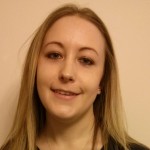There are many roles you can pursue in the actuarial profession; learn more about what it’s like being an actuarial systems analyst at SunGard and if it’s the right actuarial role for you…
I graduated from Kingston University in 2012 with a first class honours degree in Actuarial Mathematics and Statistics, after which I joined SunGard as a Graduate Actuarial Systems Analyst. I am a student member of the Institute and Faculty of Actuaries and am currently working towards my actuarial qualifications.
The SunGard graduate programme was a great way to start my career. As a graduate in the actuarial systems team, you are provided with excellent training and learning opportunities, and are given a high level of responsibility. All of the work that you do contributes towards the final product – that product being the latest release of the iWorks software suite that is used by the top insurers in the world. This makes the work that we do very rewarding.
Why did you choose a job in the profession?
I have always enjoyed mathematics and problem solving. I decided to study a numerical based degree course as I wanted to work within the finance industry, and a career as an actuary would allow me to use the numerical and analytic skills I had developed. Becoming an actuary would be a challenge and I liked the idea of this. Actuaries are highly respected throughout the finance industry and work in many different areas; I saw this as a good opportunity for me to keep my options open for the future.
What does your role involve?
As a team of actuarial systems analysts, we think of ways in which we can implement new business requirements into our software as well as maintain and improve on the current solutions we offer.
These business requirements include:
- Keeping our software up-to-date with the latest industry regulations.
- Optimising the performance of our software and making it compatible with the latest technologies, such as cloud computing.
- Enhancing the software to meet client needs and requests.
The solutions that we design need to be documented in detail so that the software developers can code it into the software. We are then responsible for testing the functionality to make sure that it works as expected. We are also responsible for helping clients who think that there may be bugs within the software by looking at their model and suggesting solutions to work around the problem.
Is it a 9-5 job?
Most days yes, but of course some weeks can be busier than others. For example, the few weeks leading up to a new release of the software can be rather demanding and you will be required to put in extra hours.
However, don’t let the 9-5 aspect fool you into thinking that it is boring work! Although your hours of work may be consistent, the work that we do is varied. The iWorks software suite includes a variety of different applications, from data analysis software to modelling software, and can be offered as a desktop application or an enterprise solution. As such, there are a lot of different things to get involved in and a lot to learn about in each specific area.
What are the most stressful parts of the job?
I very rarely feel stressed at work. There are times when we get very busy and have a lot to do – when exams are approaching time feels scarce – but I personally prefer to be busy than to be bored. The team produces such good quality solutions that I feel driven to meet these standards in all of the work that I do. I tend to see it as good motivation but it can occasionally be a bit stressful. It helps to know that you are working within a great team of experts all of whom are happy to help and share their knowledge, and working within such an enthusiastic environment is great.
What challenges have you come across and how did you overcome them?
The biggest challenge for me has been balancing work, life and study. It is not easy working full time and studying towards the actuarial qualifications.
Thankfully, SunGard provides a great study support package which includes a bank of study days, a study mentor and funding for all of the study materials and tutorials. The team is very good at making sure that we don’t have too much work to do that could interfere with our studies, especially in the period leading up to exams. There are also plenty of other actuarial students in the office, so there is always someone around for that additional help, advice and support.
What would you like to achieve in the future?
My current goal is to become a qualified actuary. After that, I will see where my career takes me. It’s important for me to feel like I am continuously learning and progressing both professionally and personally, so I plan to make the most of each of the future opportunities that happen to come my way.
What skills are useful in this profession?
As an actuarial student you will need to have good time management if you want to be successful in coping with both work and studying. Good teamwork and communication skills will be helpful too, so any work experience where you can develop these soft skills will be a benefit. Analytical skills and the ability to problem-solve are also considered to be favourable.
Do you have any advice for anyone wanting to get into the industry?
You need to be prepared to give up a large amount of your time to study for the exams, as they are not easy and you need to be very dedicated. If you can get exemptions from your university course then my advice would be to try to get as many as you can before you start working. Although it will be a challenge, you should find that your work will be equally rewarding.




